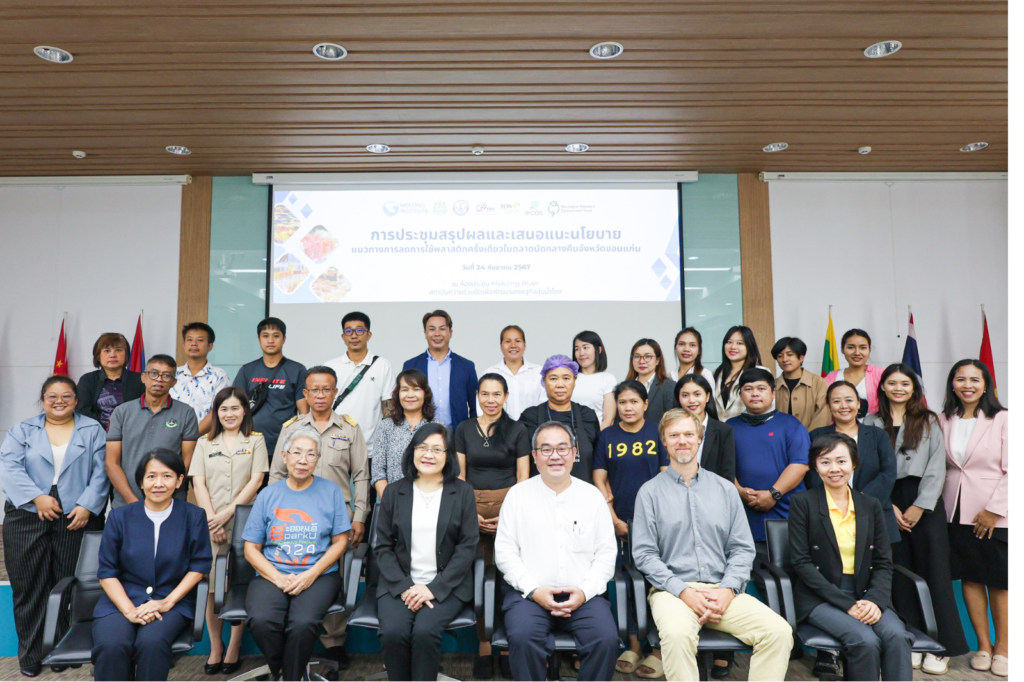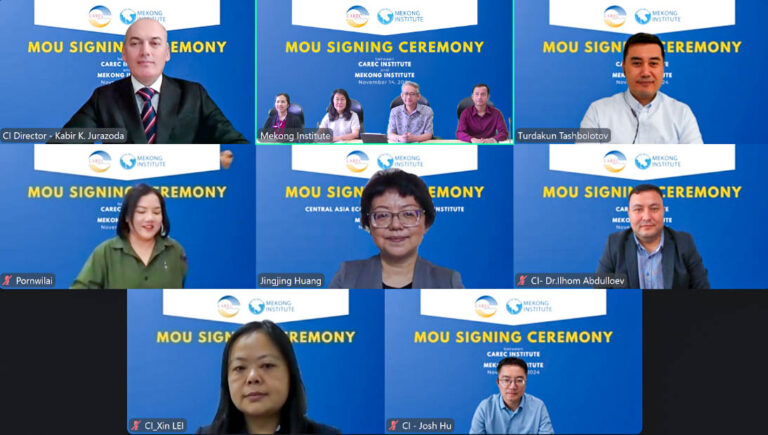Khon Kaen, Thailand – September 24, 2024 – Mekong Institute (MI), in collaboration with the Environmental Coalition on Standards (ECOS), successfully held a policy workshop on “Single-use Plastics Reduction Solutions for Khon Kaen’s Street Food Complexes” at MI’s Mekong River Conference Room. The workshop, part of an 18-month project funded by the Norwegian Retailers’ Environment Fund (NREF), aimed to foster dialogue and develop sustainable policies to reduce single-use plastics (SUP) in two of Khon Kaen’s major night markets—Mor Din Daeng and Ton Tann.
Ms. Maria Theresa S. Medialdia, Director of the Agricultural Development and Commercialization Department at MI, opened the workshop by emphasizing the importance of addressing plastic pollution, particularly in the street food sector. “Khon Kaen’s vibrant street food scene, while a cornerstone of local culture and tourism, is a significant source of plastic waste. It is essential that we come together to create solutions that not only reduce plastic waste but also promote sustainable practices across the province,” she remarked.
Representatives from Khon Kaen Municipality, the Pollution Control Department, and various local stakeholders, including vendors and community organizations, attended the workshop. Discussions centered on existing policies, the challenges of reducing SUP, and strategies for promoting sustainable alternatives in the street food industry.
The event showcased the results of the “What’s SUP Khon Kaen” campaign, which aimed to increase awareness and motivate vendors and consumers to decrease their use of SUPs. Baseline and end-line surveys presented at the workshop indicated a notable shift in behavior, with more customers choosing to bring their own reusable packaging.
Mr. Boonyalit Phanichrungruong, Deputy Mayor of Khon Kaen Municipality, delivered the opening remarks, highlighting the municipality’s strong commitment to reducing SUP amid the city’s rapid development. He emphasized that the expansion of hospitals, shopping malls, and other urban infrastructure has contributed significantly to the increase in plastic waste, with Khon Kaen now generating approximately 250 tons of waste daily. Mr. Boonyalit underscored the importance of aligning these reduction efforts with Thailand’s national roadmap on plastic waste management, which aims to minimize plastic waste going to landfills and shift towards a circular economy by 2027.
The workshop concluded with a brainstorming session where participants discussed voluntary and mandatory policy options for SUP reduction and strategies for stakeholder collaboration. Mr. Mathias Falkenberg, Programme Manager of ECOS, noted that the outputs of the workshop will inform the development of practical guidelines for Khon Kaen’s markets, with potential for expansion to other municipalities. Once finalized, the guidelines will be shared with provincial authorities to support local policy implementation and broader adoption of SUP reduction strategies.
The workshop is part of the “Upstream Single-use Plastics Reduction Solutions for Khon Kaen’s Street Food Complexes” project, a collaborative initiative by MI, NREF, and ECOS.
For more information about the project’s “What’s Sup Khon Kaen” campaign, visit its official Facebook page at facebook.com/WhatsSUPKK








